“Let’s talk stats,” said Getafe manager Jose Bordalas after their recent 0–0 draw with Osasuna. “15 interuptions [meant as break-ups] by Getafe, 37 by the opponent. Shots on goal 14 to 4. Positional advantage and superiority . . . I say this because during the build-up to the game the opposition manager said at the Coliseum we barely play football.”
He went on to say, "The usual excuse for other teams is Getafe, I won’t allow it anymore.” The comments came after Osasuna’s manager, Jacobo Arragaste, said they are a “different opponent . . . against them, very few teams can develop their play and this is to Getafe’s credit. They are a complicated opponent, who don’t let you play, they slow you down and they don’t let games flow.”
There’s plenty in there for Bordalas to parse. Some is, in fact, positive, but Bordalas used it to set the record straight as he felt Getafe’s name was being dragged through the mud.
Getafe spent 12 years in the top flight until they were relegated to the Segunda in 2016. Bordalas, a journeyman on the sideline (coaching more than 10 teams at every level of Spanish professional football), brought them straight back up. Their behaviour upon returning to La Liga has followed a pattern. Tentative at first, then bold, now proud. They finished 5th last season, their highest ever finish, playing an attritional and aggressive style.
But given that Bordalas took so long to get here, he wants to be respected now that he is finally amongst the elite. The 55-year-old led Alaves to promotion in 2016, winning the second division with them, and was sacked that same summer. He achieved promotion again 12 months later with a different team and has brought Getafe, previously the butt of many jokes, to unimaginable heights since then. You could excuse him for feeling a little looked down on.
After a slow start this season, he has rectified their form. They won just one of their first seven games but five of eight since. They sit just one point behind Atlético Madrid in the table and seven points off the top. A charge at the title is unlikely but with Bordalas in charge, regardless of who they play, they are capable enough in attack to cause concern and are always solid defensively.
It’s easy to pick on Getafe. As Arragaste said, albeit in a clumsy way, they are hard to play against. There’s a difference between being defensive and being aggressive, though. Getafe are most certainly in the second category and while, depending on subjective evaluations, some might say they also fit neatly into the first, that isn’t really the case. They’re not defensive, but they happen to be really good at defending.
So, as Bordalas said: let’s talk about stats, shall we?
The case in favour of Getafe
Getafe never lets opponents settle on the ball, and Bordalas tries to do whatever he can to provoke turnovers when the ball is won back. In this way, he might be closer to Klopp than catenaccio. Watch his Getafe side play and you’ll see them hunting in packs for the ball with Marc Cucurella, on the left, chasing the ball down and Jason on the right doing the same. It looks quite mindless at times but it's all part of the plan. It’s designed to make you feel uneasy and while it tends to provoke fouls, they're not his goal but a mere consequence. Getafe give away just seven shots per game. That’s the best in the league.
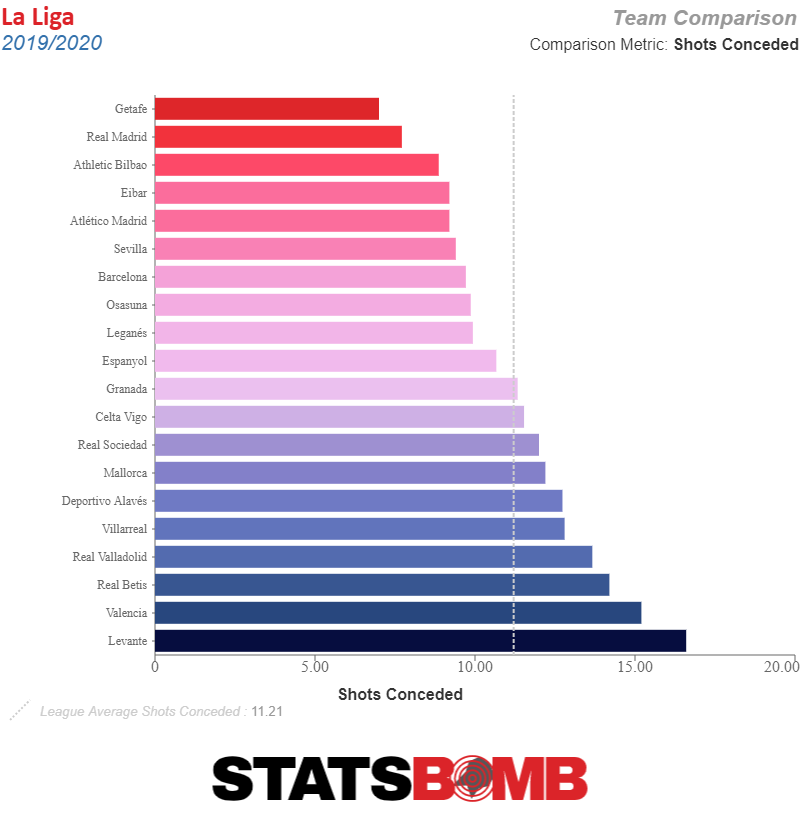
But they also press aggressively. The league average for distance from a team’s own goal to where defensive actions take place is 45.66 metres, but Getafe’s figure is 49.99—the highest in the league. Suggesting they sit back and let teams play is blatantly wrong. The team allows only seven passes per defensive action, a measure that typically helps capture how aggressive a team's press is. Again, this number is the best in the league.
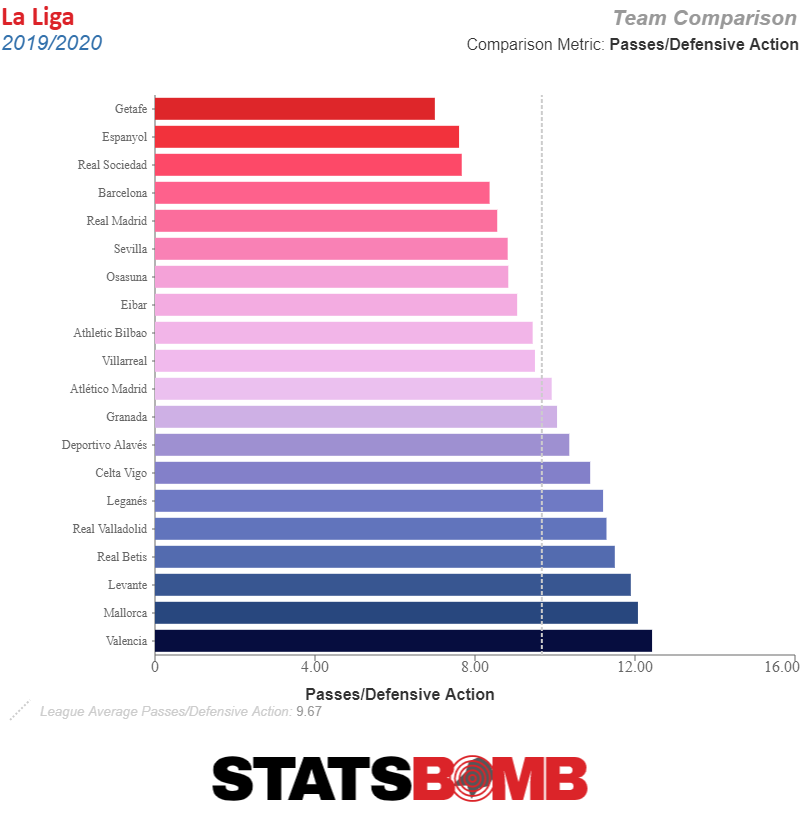
The case against Getafe
The way they attack is not seen as sophisticated. They don’t have any stylish wide men dribbling past opponents for fun and they don’t spend time building play by circulating the ball. In fact, their 11.87 dribbles per match is the third-lowest in the league.
Bordalas has his team hoof the ball forward at times, at which point his midfielders push up. The team is perfectly comfortable knowing that Cururella and Jason on the wings along with the rest will put pressure on opponents in the event Getafe don’t win the second ball. They usually do, or come close, but that’s where the idea of route one football might come from. They rely on their keeper to hoof the ball long, with an average pass length of 60.05 yards per match leading La Liga.
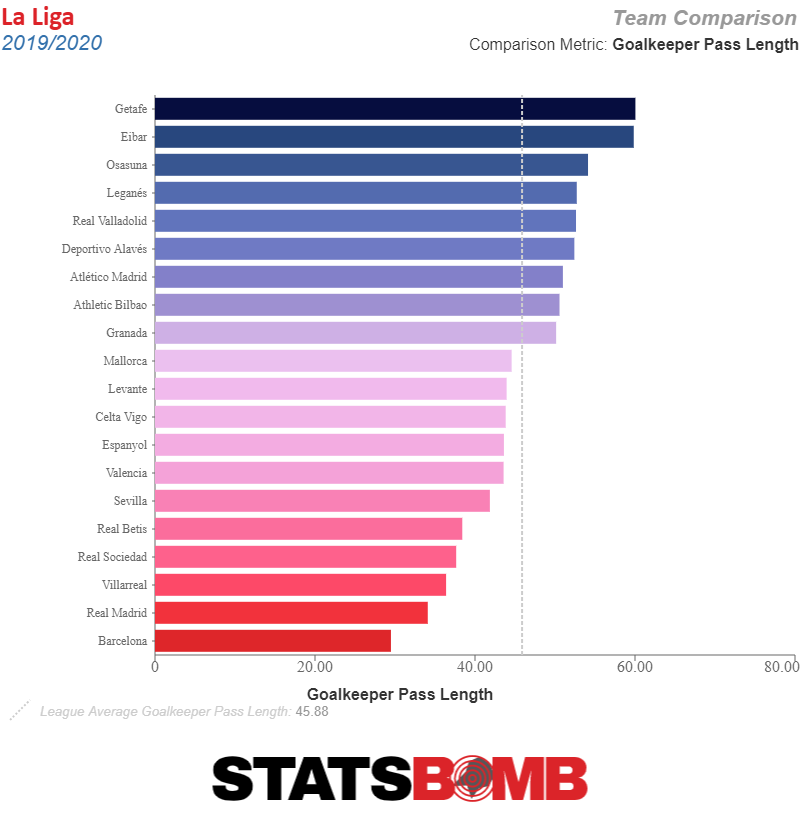
However, those passes are relatively completed. Only 36% of Getafe's long balls from the keeper position are completed, the fourth-lowest completion percentage of such passes in the league.
Unsurprisingly then, the graph below is grim. They simply don't create many expected goals.
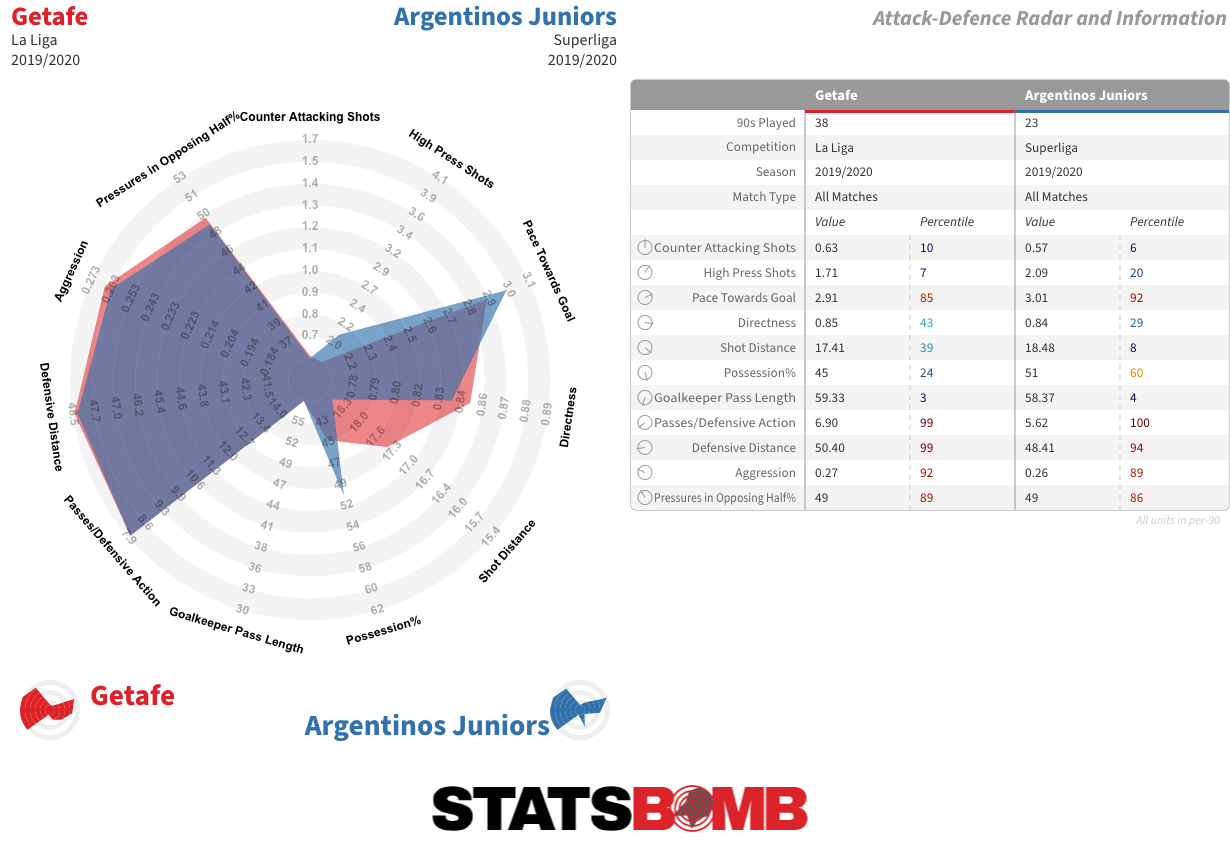
They also rely heavily on set pieces and don’t create much on their own. Against Levante last weekend, for example, they scored four goals, all of which came from set pieces. Corner, penalty, corner, free-kick.
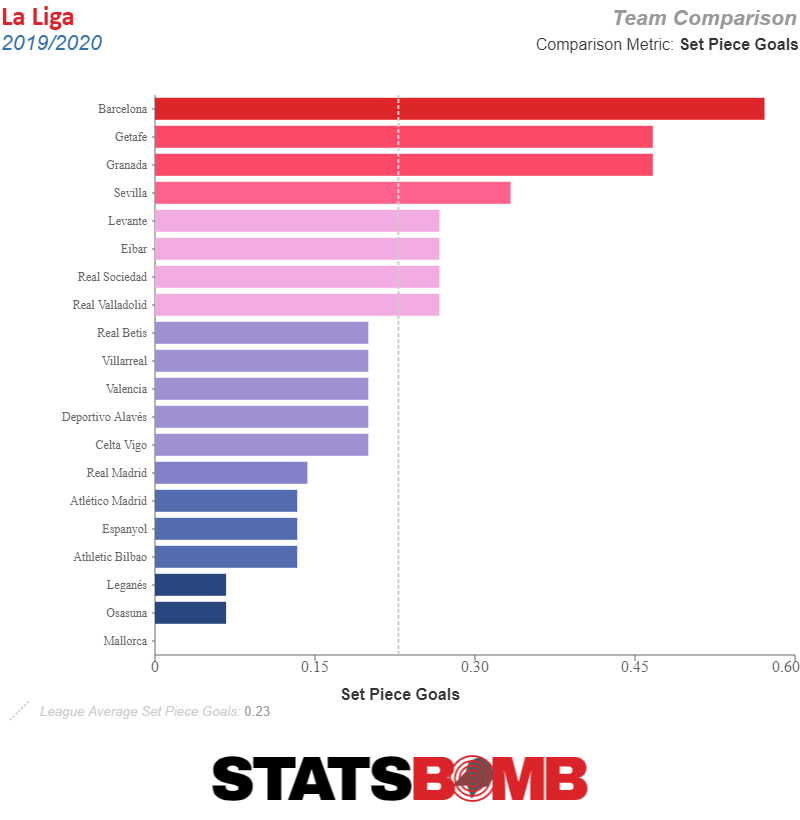
The figure shows where they applied pressure and where they tried to win the game. They sucked Levante into the middle and trapped them there when they got the chance. If Jason or Cucurella couldn’t provoke a rushed clearance, the ball would be sent back or into the middle of the field in another attempt to suffocate the visitors.
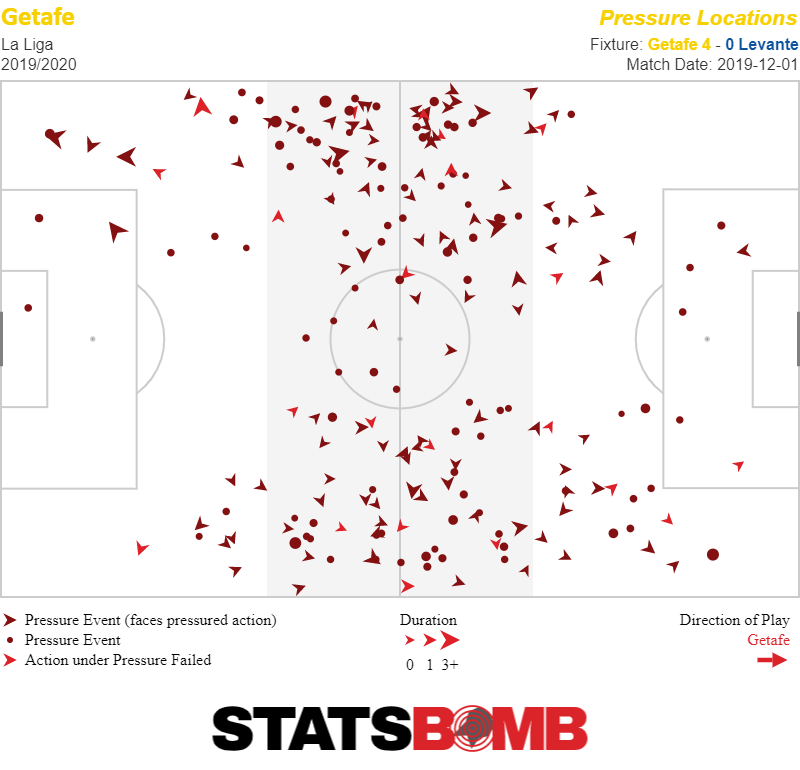
The key to their style
A typical Getafe possession looks something like this. The ball is kicked forward, the defenders are put under pressure and Getafe are there to mop up. In the image below from the first half against Levante, the ball is kicked forward, Jason presses the full-back, all of Levante’s players are marked one-on-one, and they are forced into a hurried long clearance. A very similar pressure from Jason resulted in Getafe’s second goal when he actually got a nick on the clearance, which Damian won high up the field. Seconds later it was a penalty, 2–0, and the game was beyond Levante, who would go on to lose 4–0.
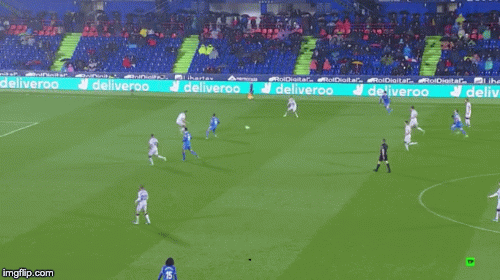
“If you haven’t seen a great match, it’s because the opposition came to draw 0–0. They have no shame in blaming us for something that they’ve done,” was how Bordalas finished his rant after the Osasuna game. If more teams were as aggressive in pursuit of the ball, maybe fans would be captivated by intense, nail-biting matches.
Getafe can be overly-aggressive at times, but that’s because Bordalas has optimised them to play at full speed and win the ball back. Should a manager complain about their playing style, it’s probably because they haven’t figured out how to beat it yet.